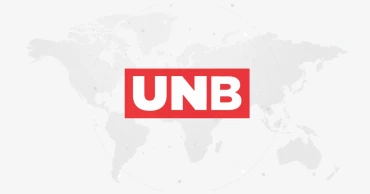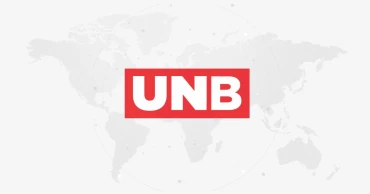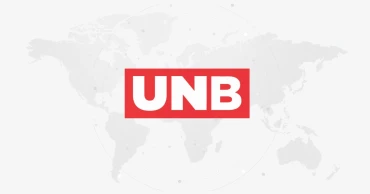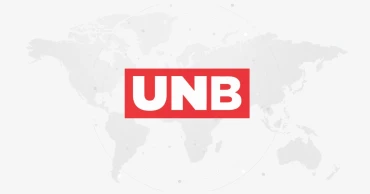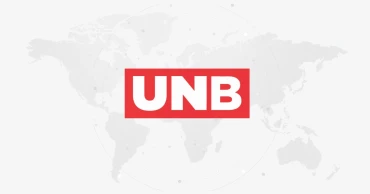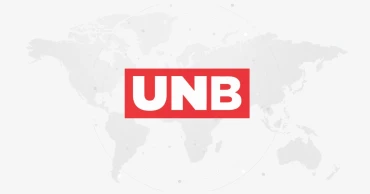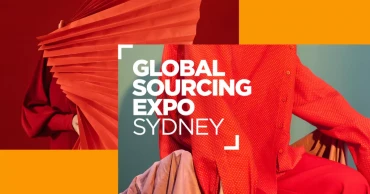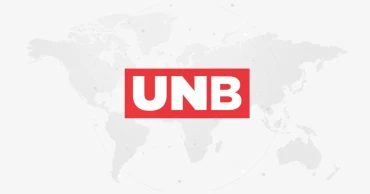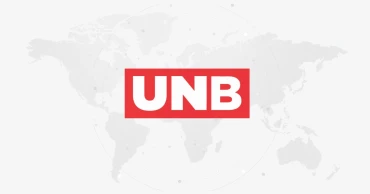World-Business
BIMSTEC Summit: High-profile Bangladesh business delegation to visit Thailand in November
A high-profile business delegation from Bangladesh will visit Thailand in November during Prime Minister Sheikh Hasina’s participation at the BIMSTEC Summit.
The sixth BIMSTEC Summit will be held in November 2023 in Bangkok, Thailand, in which Bangladesh will assume the chairmanship of the regional grouping. Prime Minister Sheikh Hasina will attend the event.
Thai investors can get opportunities in Bangladesh to invest through the foreign investment friendly policy in the country as the two countries have the similar environmental and cultural ties, said Executive Chairman of Bangladesh Investment Development Authority (BIDA) Lokman Hossain Miah said in a recent courtesy meeting with newly elected board of directors of Bangladesh-Thai Chamber of Commerce and Industry (BTCCI), said the Chamber on Sunday.
BTCCI sought all sorts of cooperation and supports from BIDA to make the programme in Thailand successful.
BTCCI also requested BIDA Executive Chairman to make available data regarding investment opportunities in Bangladesh especially tax exemption facility, incentives, foreign specialists working at Foreign Companies in Bangladesh.
BIDA Executive Chairman assured the business leaders of extending their support to BTCCI’s proposals.
He emphasized on the joint venture between Bangladesh and Thailand in some sectors like agro-processing, tourism & hospitality management, jute and jute goods, fisheries, pharmaceuticals etc.
Shams Mahmud, President of BTCCI, introduced the newly elected Board of Directors of BTCCI to the BIDA Executive Chairman and its officials.
He apprised to BIDA officials regarding on the plan of BTCCI to take necessary steps for enhancing bilateral relationship between Bangladesh and Thailand.
BTCCI President also emphasized on the increasing export of different products such as pharmaceuticals, jute and jute goods, leather, RMG and ceramics from Bangladesh to Thailand and relocating labor intensive industries in Bangladesh.
BIDA Executive Chairman thanked the board of Directors to come forward for the discussion of bilateral issues of Bangladesh and Thailand and extended his appreciation to BTCCI for working to enhance bilateral business relationship between Bangladesh and Thailand.
Executive members of BIDA including Mohsina Yasmin, Md. Salem Sulaiman, Vice President, Khemathat Archawathamrong, Honorary Director, Mohammad Junaed Ibne Ali, Director Finance, Shahzada A Hamid, Md. Ahsanuzzaman, Brahmanda Pratap Barua, Directors, Md. Nazmul Hossen ACS, Secretary of BTCCI attended the meeting among others.
Fitch downgrades US credit rating to AA+ from AAA, cites rising debt and ‘decline’ in standards of governance
Fitch Ratings has downgraded the United States government's credit rating, citing rising debt at the federal, state, and local levels and a "steady deterioration in standards of governance" over the past two decades.
The rating was cut Tuesday one notch to AA+ from AAA, the highest possible rating. The new rating is still well into investment grade.
Also read: Moody's downgrades Bangladesh's sovereign credit rating one notch; outlook 'stable'
The decision illustrates one way that growing political polarization and repeated Washington standoffs over spending and taxes could end up costing U.S. taxpayers. A lower credit rating, over time, could raise borrowing costs for the U.S. government.
It's only the second time in the nation's history that its credit rating has been cut. In 2011, the ratings agency Standard & Poor's stripped the U.S. of its prize AAA rating after a prolonged fight over the government's borrowing limit. The Government Accountability Office, in a 2012 report, estimated that the 2011 budget standoff raised Treasury's borrowing costs by $1.3 billion that year.
Also read: Credit rating companies tie up to let Bangladeshi firms access foreign loans
At the same time, the huge size of the U.S. economy and historic stability of the federal government has kept its borrowing costs low. Global investors often flock to U.S. Treasury securities during periods of economic turmoil, lowering the interest rate paid by the U.S. government.
Fitch had warned May 24 that it could remove the government's triple-A rating as Congress again struggled to raise the borrowing limit. A deal was reached nearly a week later that suspended the limit and cut about $1.5 trillion from the government deficit over the next decade.
Also read: BGMEA president briefs Moody's team on sector's outlook
Fitch cited the worsening political divisions around spending and tax policy as a key reason for its decision. It said U.S. governance has declined relative to other highly rated countries and it noted "repeated debt limit standoffs and last-minute resolutions."
Biden administration officials strongly criticized Fitch's move. Treasury Secretary Janet Yellen said it was "arbitrary" and "based on outdated data."
Yellen noted that the U.S. economy has rapidly recovered from the pandemic recession, with the unemployment rate near a half-century low and the economy expanding at a solid 2.4% annual rate in the April-June quarter.
Fitch informed Biden administration officials that the Jan. 6, 2021 insurrection was a factor in its decision to downgrade because it indicated an unstable government, according to a person familiar with the discussions between the administration and the rating agency. Fitch produced a report last year that showed government stability declined from 2018 to 2021, but increased since Biden assumed the presidency, said the person, who was granted anonymity to disclose private conversations.
Another factor in Fitch's decision is that it expects the U.S. economy to tumble into a "mild recession" in the final three months of this year and early next year. Economists at the Federal Reserve made a similar forecast this spring but then reversed it in July and said growth would slow but a recession would likely be avoided.
OPPO ranks first in Chinese smartphone market in H1 of 2023
Smartphone brand OPPO ranked first in the Chinese smartphone market in the first half of 2023 and fourth globally during the same period, boosted by the strong performance of its Find N2 series and Find X6 series flagship smartphones.
According to data from Canalys, OPPO held a 10% share of the global smartphone market in H1, with 51.9 million shipments, and an 18% share of the China smartphone market in H1 2023, making it the best-selling brand in China during the first half of the year, according to a press release.
OPPO’s performance has been driven in part by the success of its foldable smartphones, which entered a period of rapid growth this year and continue to show significant upside potential, it said.
New data from Canalys showed that OPPO held a dominant 31% share of the foldable smartphone market in China during the first quarter of 2023, making it the leader in the growing segment. At the product level, the OPPO Find N2 Flip outperformed all other foldable products to make up 15% of foldable smartphone sales in China from January to May 2023, according to Counterpoint.
As the first vertical flip phone to introduce a larger cover screen, the Find N2 Flip is crafted for practicality and enjoyment for daily use, featuring a less-visible crease, a powerful battery, and an intuitive UI design alongside other industry-leading innovations.
These innovations and the commercial success of the Find N2 Flip have also helped OPPO to outperform the global foldable market this year, where its market share has increased from 5% in Q1 2022 to 13% in Q1 2023, according to Canalys.
Amazon, Google, Meta, Microsoft and other tech firms agree to AI safeguards set by the White House
President Joe Biden said Friday that new commitments by Amazon, Google, Meta, Microsoft and other companies that are leading the development of artificial intelligence technology to meet a set of AI safeguards brokered by his White House are an important step toward managing the "enormous" promise and risks posed by the technology.
Biden announced that his administration has secured voluntary commitments from seven U.S. companies meant to ensure their AI products are safe before they release them. Some of the commitments call for third-party oversight of the workings of commercial AI systems, though they don't detail who will audit the technology or hold the companies accountable.
"We must be clear eyed and vigilant about the threats emerging technologies can pose," Biden said, adding that the companies have a "fundamental obligation" to ensure their products are safe."Social media has shown us the harm that powerful technology can do without the right safeguards in place," Biden added. "These commitments are a promising step, but we have a lot more work to do together."
A surge of commercial investment in generative AI tools that can write convincingly human-like text and churn out new images and other media has brought public fascination as well as concern about their ability to trick people and spread disinformation, among other dangers.
The four tech giants, along with ChatGPT-maker OpenAI and startups Anthropic and Inflection, have committed to security testing "carried out in part by independent experts" to guard against major risks, such as to biosecurity and cybersecurity, the White House said in a statement.
That testing will also examine the potential for societal harms, such as bias and discrimination, and more theoretical dangers about advanced AI systems that could gain control of physical systems or "self-replicate" by making copies of themselves.
The companies have also committed to methods for reporting vulnerabilities to their systems and to using digital watermarking to help distinguish between real and AI-generated images known as deepfakes.
They will also publicly report flaws and risks in their technology, including effects on fairness and bias, the White House said.
The voluntary commitments are meant to be an immediate way of addressing risks ahead of a longer-term push to get Congress to pass laws regulating the technology. Company executives plan to gather with Biden at the White House on Friday as they pledge to follow the standards.Some advocates for AI regulations said Biden's move is a start but more needs to be done to hold the companies and their products accountable.
"A closed-door deliberation with corporate actors resulting in voluntary safeguards isn't enough," said Amba Kak, executive director of the AI Now Institute. "We need a much more wide-ranging public deliberation, and that's going to bring up issues that companies almost certainly won't voluntarily commit to because it would lead to substantively different results, ones that may more directly impact their business models."
Senate Majority Leader Chuck Schumer, D-N.Y., has said he will introduce legislation to regulate AI. He said in a statement that he will work closely with the Biden administration "and our bipartisan colleagues" to build upon the pledges made Friday.
A number of technology executives have called for regulation, and several went to the White House in May to speak with Biden, Vice President Kamala Harris and other officials.
Microsoft President Brad Smith said in a blog post Friday that his company is making some commitments that go beyond the White House pledge, including support for regulation that would create a "licensing regime for highly capable models."
But some experts and upstart competitors worry that the type of regulation being floated could be a boon for deep-pocketed first-movers led by OpenAI, Google and Microsoft as smaller players are elbowed out by the high cost of making their AI systems known as large language models adhere to regulatory strictures.
The White House pledge notes that it mostly only applies to models that "are overall more powerful than the current industry frontier," set by currently available models such as OpenAI's GPT-4 and image generator DALL-E 2 and similar releases from Anthropic, Google and Amazon.
A number of countries have been looking at ways to regulate AI, including European Union lawmakers who have been negotiating sweeping AI rules for the 27-nation bloc that could restrict applications deemed to have the highest risks.
U.N. Secretary-General Antonio Guterres recently said the United Nations is "the ideal place" to adopt global standards and appointed a board that will report back on options for global AI governance by the end of the year.
Guterres also said he welcomed calls from some countries for the creation of a new U.N. body to support global efforts to govern AI, inspired by such models as the International Atomic Energy Agency or the Intergovernmental Panel on Climate Change.
The White House said Friday that it has already consulted on the voluntary commitments with a number of countries.
The pledge is heavily focused on safety risks but doesn't address other worries about the latest AI technology, including the effect on jobs and market competition, the environmental resources required to build the models, and copyright concerns about the writings, art and other human handiwork being used to teach AI systems how to produce human-like content.
Last week, OpenAI and The Associated Press announced a deal for the AI company to license AP's archive of news stories. The amount it will pay for that content was not disclosed.
G-20 alliance can play a major role in solving global economic crisis: Finance Minister
Finance Minister AHM Mustafa Kamal has said G-20 can play a major role in resolving the ongoing global economic crisis.
He also expressed hope that Bangladesh will soon be included as a member of the G-20 alliance, the finance ministry said in a press release today.
Kamal expressed the optimism at the G-20 meeting in Gujarat, India. The Bangladesh delegation led by the finance minister and the governor of Bangladesh Bank, Abdur Rauf Talukdar, is participating in the conference which is being held in Gandhinagar, Gujarat of India.
Also read: Mustafa Kamal attending G20 Finance Ministers' Conference in Gandhinagar
The finance minister said that G-20 is an international economic alliance consisting of 20 industrialized countries of the world. This alliance was formed to bring together important industrialized and developing countries of the world to discuss key issues of the global economy.
“We need to be more aware of this and to resolve this crisis, we must be sincere.. the G-20 alliance can play a very important role,” Kamal said.
Also read: Finance Minister briefs parliament on BFIU's activities
He said that participating in the G-20 process is a unique opportunity for Bangladesh.
Bangladesh will also participate as a “guest country” in the G-20 summit to be held on September 9, 10. Prime Minister Sheikh Hasina has also been invited to attend the summit of heads of state and governments.
Also read: Budget not based on IMF conditions: Finance Minister
China exports slumped 12.4% in June from a year earlier as global demand weakened
China's exports tumbled 12.4% in June from a year earlier as demand weakened after central banks raised interest rates to curb inflation even as Chinese leaders struggled to keep a post-COVID recovery from faltering.
Customs data released Thursday showed imports slid 6.8% to $214.7 billion. Exports edged up slightly from the month before, totaling $285.3 billion. The trade surplus was $70.6 billion, rising from $65.8 billion in May.
Trade weakness adds to downward pressure on the world's second-largest economy. Global consumer demand has weakened after the Federal Reserve and central banks in Europe and Asia raised interest rates to bring inflation down from near multi-decade highs by reining in business and consumer activity.
Also read: Overtaking US, India will become second largest economy in the world by 2075: Goldman Sachs
In January-June, China's total trade including imports and exports fell nearly 5% from a year earlier. Exports slipped 3.2% and imports declined 6.7% as prices of commodities like oil fell and demand inside China also faltered.
Exports to the United States tumbled 23.7% from a year earlier to $42.7 billion, a six-month low, while imports of American goods sank 4.1% to $14 billion. China's politically volatile trade surplus with the United States narrowed by 30.6% to $28.7 billion.
Trade also has been dampened by tension with Washington and restrictions on access to U.S. processor chips and other technology in a feud with Beijing over security and Chinese industrial policy. Chinese factories assemble most of the world's smartphones and other electronics.
Also read: Persistent inflation, rising interest rates will weigh on global economy, OECD predicts
"With the global downturn in goods demand continuing to weigh on exports, we think exports will decline further for now before bottoming out toward the end of the year," Zichun Huang of Capital Economics said in a commentary. "But the good news is that the worst of the decline in foreign demand is probably already behind us."
Imports from Russia were up 15.7% to $11.3 billion. China has been buying more Russian oil and gas to take advantage of price cuts. That has helped shore up the Kremlin's cash flow after the United States, Europe and Japan cut off most purchases to punish Moscow for President Vladimir Putin's invasion of Ukraine.
Beijing can buy Russian oil and gas without triggering Western sanctions. China has also become Russia's biggest export market and an important source of manufactured goods. Exports to Russia surged 90.9% in June from the year before to $9.5 billion.
Also read: Sri Lanka reduces interest rates for 1st time since bankruptcy as economy shows signs of rebounding
The ruling Communist Party set this year's official economic growth target at "around 5%," up from last year's 3% expansion, which was the second-weakest since the 1970s. Some economists raised their growth forecasts to closer to 6% following unexpectedly strong trade figures in March.
In April, the government announced steps to support struggling exporters, including by making more trade finance available and encouraging cross-border e-commerce.
A five-month campaign launched late April also is meant to increase trade by improving logistics and cutting costs for exporters in 17 cities including Beijing and Shanghai.
Bangladesh participates in Global Sourcing Expo Sydney 2023
The three-day Global Sourcing Expo Sydney 2023 has begun at the International Convention Centre in Sydney, Australia.
Some 22 companies from Bangladesh in the fields of apparel, textile, jute, home decor, and gifts are participating in the event under the initiatives of the Bangladesh High Commission in Canberra.
Among them, eight exhibitors in readymade garments are funded by the Export Promotion Bureau of Bangladesh.
Read: Trade in Rupee with India will start a new era of trade in different currencies: Experts
Bangladesh High Commissioner to Australia, M. Allama Siddiki, and Chief Executive of the organizing firm, Marie Kinsella, inaugurated the exhibition of Bangladeshi products at the Global Sourcing Expo.
The Consul General of Bangladesh in Sydney, Commercial Counsellor and other officers of the High Commission were present there.
Australia’s global sourcing trade show is held twice a year with expos in Sydney and Melbourne. It brings together more than 350 manufacturers and suppliers from around the world.
Read: Chinese company to invest US$ 76.41 million at BEPZA Economic Zone
This international trade show provides a platform for businesses to showcase their products, explore new markets, and establish valuable connections.
The expo provides enhanced opportunities for global exporters, manufacturers, and producers to reach their targeted trade-buying audience.
Read: Deal signed to import 1.80 lakh tonnes of fertiliser from Russia
Apparel scores top in Bangladesh-Australia bilateral trade.
The ready-made garment (RMG) constitutes about 93% of total export to Australia. Bangladesh is the 32nd largest trade partner of Australia.
Trade in Rupee with India will start a new era of trade in different currencies: Experts
Bangladesh will start trade with India in Rupees in order to reduce stress on the US dollar requirements from Tuesday .
Experts and businesses opined that it will save $2 billion dollars at least annually, which Bangladesh may use for other purposes.
Besides, a significant portion of the dollar will be saved from the informal sector, which was spent by travelers to India for different purposes, following another initiative of dual currency cards, they said.
Former governor of Bangladesh Bank (BB) Dr Atiur Rahman told UNB that Bangladesh's trade in Indian Rupees will start in regional trade with an alternate currency which will also incorporate Bangladesh Taka subsequently.
Read: Despite over 8% revenue collection growth, Tk 44000 crore shortfall in FY 2022-23
This will help take some pressure off the ACU payment settlement which takes place every two months, he said.
However, this will be only a small step as there is a huge imbalance in Indo-Bangladesh trade, Dr Atiur said.
“Bangladesh exports about $2 billion to India against India exporting nearly eight times of that amount. So, our designated banks can open accounts in Indian designated banks and put export proceeds in Rupees,” he opined.
Read: Khurshed Alam elected chair of Finance Committee of the International Seabed Authority
Similarly, Indian banks can open Taka accounts in Bangladesh banks to put their export proceeds in Taka to a limited extent. The rest of the payments will continue conventionally in dollars, he said.
The dollar being the dominant currency, the trading in Indian Rupee will be only partial and experimental.
“We will learn by doing. One should not be complacent about it, although this can be a new way of transactions in regional alternate currencies,” Dr Atiur added.
Read: Bangladesh Bank working to normalise inflation and dollar crisis despite geopolitical challenges
President of India-Bangladesh Chamber of Commerce and Industry (IBCCI) Abdul Matlub Ahmad told UNB that Bangladeshi traders incur an additional cost of 4-6 percent that will be saved if taka-rupee transactions are started.
Three-day Bhutan trade fair ends on Sunday
The three-day Bhutan Trade and Investment Fair is ending on Sunday.
The Bhutan Embassy in Dhaka organised the fair as the first in Bangladesh, which was inaugurated by Commerce Minister Tipu Munshi at Gulshan Shooting Club in the capital on Friday.
Read: Chinese company to invest US$ 76.41 million at BEPZA Economic Zone
The event was attended by Bhutanese Heads of Missions, Business Chairpersons, Executives of top business organizations and other officials.
Around 25 companies from Bhutan have participated in this fair. Even at the fair they showcased premium quality products made in Bhutan and produced in Bhutan.
Read: Deal signed to import 1.80 lakh tonnes of fertiliser from Russia
Tipu Munshi said that India, Japan, South Korea have already come forward to invest in Bangladesh’s economic zones. There is also a chance for Bhutan to come.
“I will request Bhutan, come to Bangladesh, invest in economic zones,” the minister said.
Chinese company to invest US$ 76.41 million at BEPZA Economic Zone
Chinese Company Mingda (Bangladesh) New Material Co Ltd is going to invest USD $76.41 million at BEPZA Economic Zone for producing diversified products.
The company signed an agreement with Bangladesh Export Processing Zones Authority (BEPZA) to this effect at BEPZA Complex, in Dhaka on Thursday.
Ali Reza Mazid, Member (Investment Promotion) of BEPZA, and Huang Shangwen, Director of Mingda (Bangladesh) New Material Co. Ltd signed the agreement on behalf of their respective organizations.
Also read: Chinese envoy lauds FAO’s role in Bangladesh’s agriculture development
BEPZA Executive Chairman Major General Abul Kalam Mohammad Ziaur Rahman witnessed the signing ceremony.
BEPZA Executive Chairman thanked Mingda (Bangladesh) for choosing Bangladesh as well as BEPZA EZ as their investment destination.
He said that BEPZA mainly emphasized on three things to establish a factory in EPZ- diversified products, amount of investment, and employment. He urged Mingda (Bangladesh) to start the construction of the factory as early as possible and requested for the optimum use of land.
Also read: Chinese company to invest $6 million in BEPZA Economic Zone
Huang Shangwen, Director of Mingda (Bangladesh) said that they have some factories in China. Now they are going to set up factories in Bangladesh due to increasing wages of workers of China.
Mingda (Bangladesh) will produce different Cotton products including Imitation Silk Cotton, Tile Cotton, Needle Punched Cotton; different types of Artificial/Manmade Fabric, Artificial Fabrics including Geotextile; different Hospital products and Bags & Packaging Items including Geo-bag, Non-woven bag etc. 2830 Bangladesh nationals will get employment opportunity in the factory.
Also read: China says PM Hasina's remarks against sanctions reflect a ‘large part of int'l community's mind’
Among others, Member (Engineering) Mohammad Faruque Alam, Member (Finance) Nafisa Banu, Executive Director (Investment Promotion) Md. Tanvir Hossain, Executive Director (Enterprise Services) Md. Khorshid Alam and the Project Director of BEPZA EZ Mohammad Anamul Haque were present during the signing ceremony.
Including Mingda (Bangladesh), BEPZA signed lease agreements with total of 21 companies of home and abroad to establish factories in BEPZA EZ and their total proposed investment exceeded over US$ 500 million.
Also read: Bangladesh, China interested in contributing to regional connectivity under BRI
